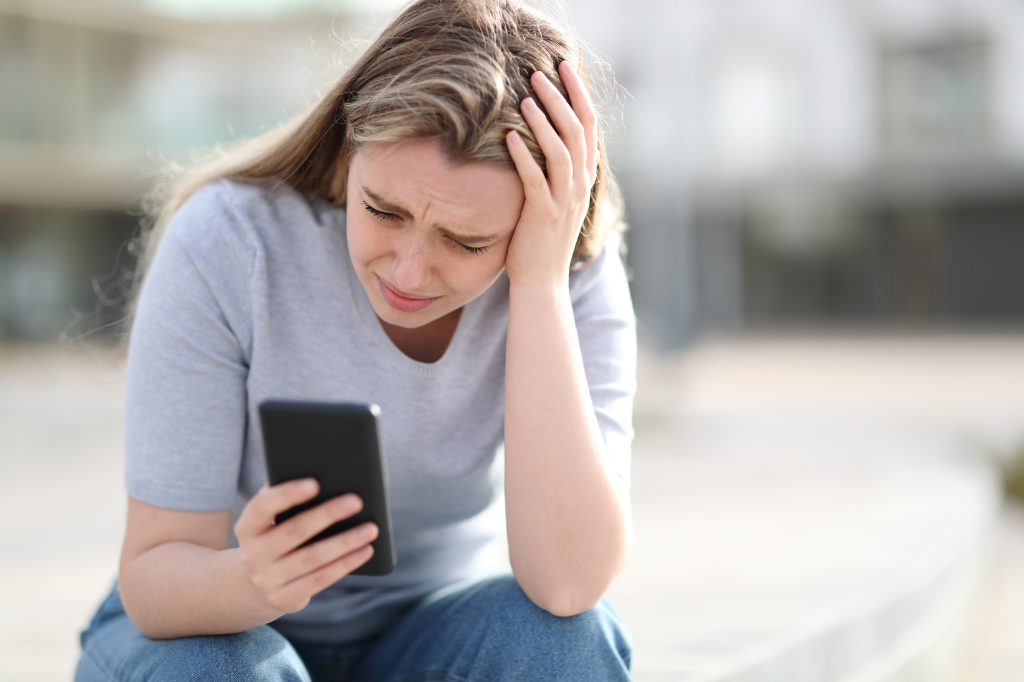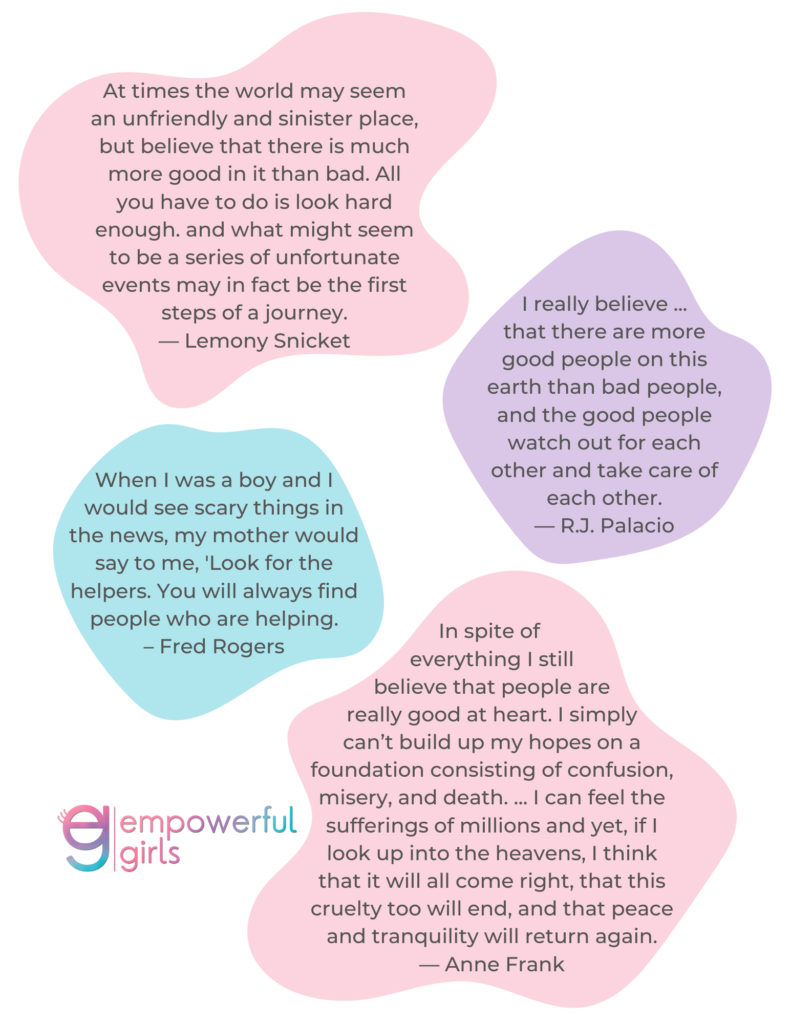
Taking in Too Much Bad News
How are you doing, honestly? We keep seeing and hearing about really sad or scary things happening throughout the world. Some of those events may have been near where you’re at. And before we even get all the facts to understand what happened and work through our feelings, another thing happens. That mental load gets even heavier and is too much to process.
I’ve worked at a few TV news stations, and as an Assignment Desk Editor, most of my job was to find news. I listened to police and fire scanner radios, checked updates on national news, got tips from viewer phone calls and emails, browsed court records for crimes. Even on my days off I stayed updated on what was going on. Constantly consuming bad news was affecting me – it would either weigh me down or I’d try to block how the news made me feel.
Lately I’ve noticed my response to bad news is doomscrolling, which is defined by Merriam-Webster as “the tendency to continue to surf or scroll through bad news, even though that news is saddening, disheartening, or depressing.” While the intention may be to stay informed on what’s happening, doomscrolling is not good for mental health.
How to Cope with Tragic News Events
On social media I’ve seen a lot of helpful posts about how parents can talk to their kids when sad or scary things happen. I recognize though, that sometimes you might hear about that kind of news without a parent or trusted adult next to you, or they might not bring it up when you’re around them. I hope these next tools help you cope with tragic news events.
These tips came from the US Department of Health and Human Services and ReachOut.com, a mental health resource in Australia.
- Check in with yourself, ask how are you really doing? You don’t have to be ok or pretend everything is fine when you’re not. You are human, you have emotions, and you are affected by what goes on around you. Practice self-compassion and allow yourself to recognize how you feel.
- Bottling up big emotions is like shaking a can of soda before opening it. Let them out in a productive, healthy way. Express your feelings by writing, drawing/painting, singing, dancing, etc. to help relieve your stress.
- Even if a parent or trusted adult doesn’t approach you to discuss tragic news events, you can start the conversation. Tell them what you’ve heard, ask questions, share your feelings, cry if you need to–just talk about it together. We need connection especially during difficult times.
- Expand your discussion by researching together about the issues involved with that event or other things going on in the world. Use critical thinking skills and consider multiple perspectives to develop greater understanding. Also check that you’re getting information from reliable sources that share facts.
- Turn off the news, log off social media, and even pause talking about what happened for a little while. I know from experience that consuming bad news nonstop isn’t helpful. Take a break to clear your head.
- Shift your focus by doing things you enjoy to balance out the heavy stuff on your mind. Hang out with friends, listen to music, watch your favorite show, make a craft or work on a hobby. Also doing something that moves your body can be helpful, like going to the park with your family, playing sports, and spending time outdoors.
- Practice other important forms of self care like getting enough sleep, mindfulness, and breathing exercises.
- If you want to help by getting involved, you could connect with an organization coordinating volunteers or donations, call/write/email your government officials, or make cards for people who were affected by what happened or for people who helped out.
Quotes to Help
I also want to share a few quotes with you that I hope are helpful:
“In spite of everything I still believe that people are really good at heart. I simply can’t build up my hopes on a foundation consisting of confusion, misery, and death. … I can feel the sufferings of millions and yet, if I look up into the heavens, I think that it will all come right, that this cruelty too will end, and that peace and tranquility will return again.”
― Anne Frank
“At times the world may seem an unfriendly and sinister place, but believe that there is much more good in it than bad. All you have to do is look hard enough, and what might seem to be a series of unfortunate events may in fact be the first steps of a journey.”
— Lemony Snicket
“When I was a boy and I would see scary things in the news, my mother would say to me, ‘Look for the helpers. You will always find people who are helping.’”
– Fred Rogers
“I really believe … that there are more good people on this earth than bad people, and the good people watch out for each other and take care of each other.”
― R.J. Palacio
Quotes to Cope with Tragic News Events Poster Printable
To help you with this,I created a poster of “Quotes to Cope with Tragic News Events” that you can print out, personalize, and post on your wall where you’ll see it, remember it, practice it, and believe it — that’s the important part.
Resources
You may also want to check out:
Books:
What to Do When the News Scares You by Jacqueline B. Toner
Something Bad Happened by Dawn Huebner
If you have a topic suggestion, I’d love to hear from you! Send an email (tweens get the OK from your parents) to hello@EmpowerfulGirls.com .
If you have social media already, follow me on Insta or tiktok @empowerfulgirls. I’m not encouraging or endorsing social media, but I’m on there to offer an unfiltered, uplifting alternative to what’s in your feed. Remember to get on the email list for the newsletter!
Also, if you enjoy listening to 10 for Teens + Tweens, I would truly appreciate you telling your friends about this podcast or leaving a review so others can find it and feel uplifted, too! Your support means the world to me!
